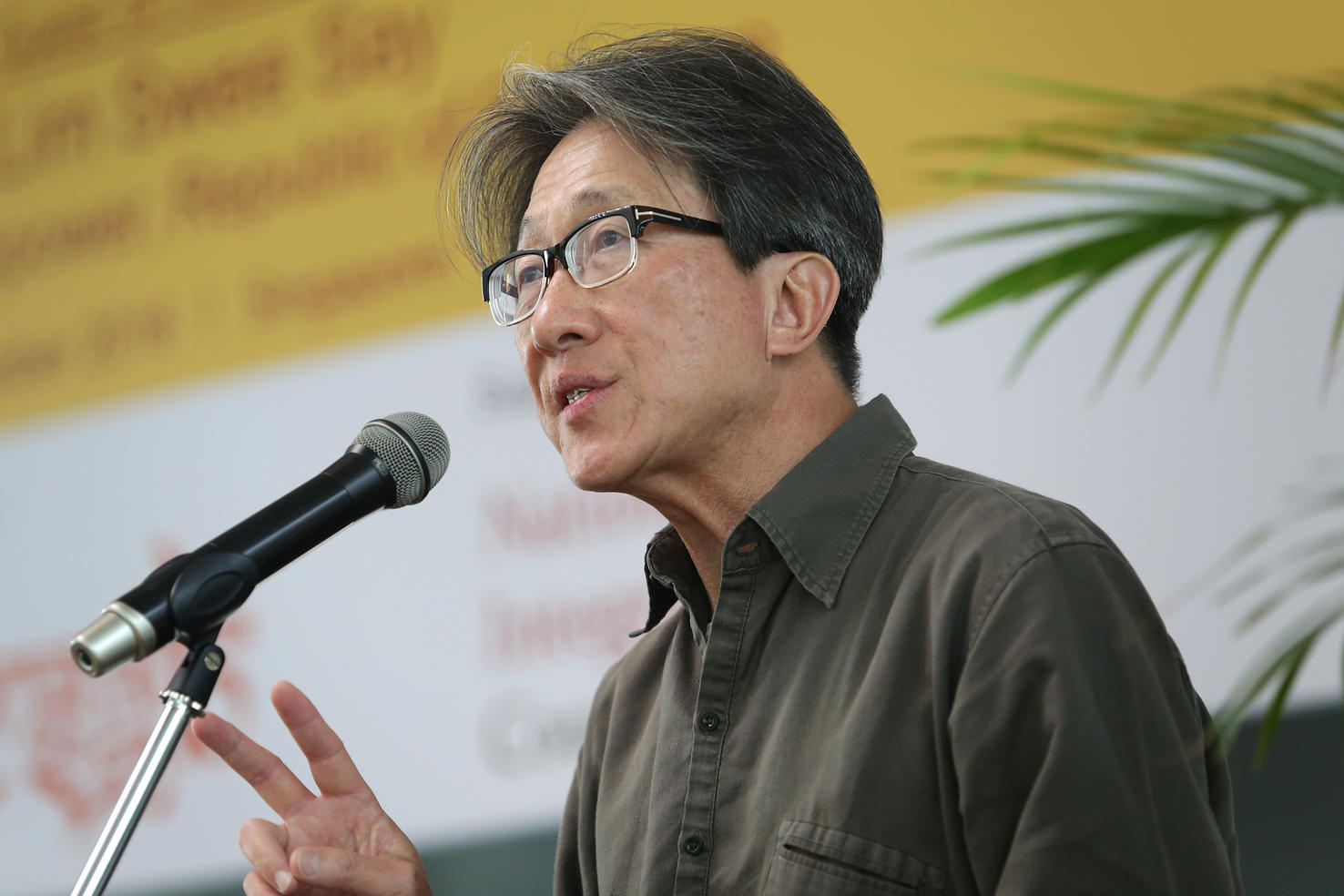Over 1,400 SMEs start restructuring projects to become manpower-lean in first year of government scheme
Sign up now: Get ST's newsletters delivered to your inbox

Manpower-lean growth, not manpower-led is the way forward, said Manpower Minister Lim Swee Say on Thursday (Nov 3).
PHOTO: TIFFANY GOH FOR THE STRAITS TIMES
Follow topic:
SINGAPORE - More than 1,400 companies have started projects under the Lean Enterprise Development (LED) Scheme, which supports small- and medium-sized enterprises (SMEs) that want to become more manpower-lean and productive.
The multi-agency scheme to boost restructuring efforts was launched last October as a two-year pilot project and has helped companies in industries such as food services, retail, engineering, construction and manufacturing.
Besides providing financial assistance, the scheme also allows them some leeway in employing foreigners if this helps them to train or improve the quality of jobs for Singaporeans. This transitional manpower support for each project is reviewed annually and can be renewed for up to three years.
Manpower-lean growth, not manpower-led is the way forward, said Manpower Minister Lim Swee Say on Thursday (Nov 3), calling the response so far "encouraging".
"With ageing and the low birth rate, our local workforce is growing much slower, and may stagnate in the next decade... With foreign manpower growing much slower too, our challenge is to ensure that this sharp drop in our total workforce growth will not become the bottleneck in the future growth of our economy, and also for your businesses," he said, addressing over 600 employers at the first LED Symposium at Grand Copthorne Waterfront Hotel.
The LED scheme, which is a collaboration by the National Trades Union Congress, trade associations and chambers, and the Government, is meant to be a one-stop source of help for businesses, he said.
There are generally four types of SMEs they have come across, Mr Lim said.
First, those which do not see the need to transform, which the LED scheme is trying to reach out to. Second, those which want to improve but do not know how, which can be guided by consultants. Third are those which want to transform but do not have the resources to make it happen, which can benefit from funding support. Finally, those which can band together to implement larger scale projects for the whole industry.
Mr Lim also highlighted some organisations which have successfully made changes in their businesses to become more productive. The Container Depot Association of Singapore (CDAS), for example, introduced an electronic system in August to link up some 1,500 drivers and trucks from 200 companies with the depots, ports and warehouses. They received funding support from Spring Singapore and Workforce Singapore.
The system removes the need for drivers to get out of their cabins to register and pick up order documents, and also works with the Container Management System which the association launched two years ago to improve efficiency as drivers do not have to wait at the depot if containers are not ready.
This reduced queuing time by 30 per cent and the drivers can make about one extra trip per day, said CDAS executive director Laura Lim. The association has trained some 500 drivers and 100 fleet controllers to use the new systems on iPads.
"We are also trying to save drivers skipping up and down from their cabins. Most local drivers are in their fifties at least, and this makes their jobs easier," she said.

